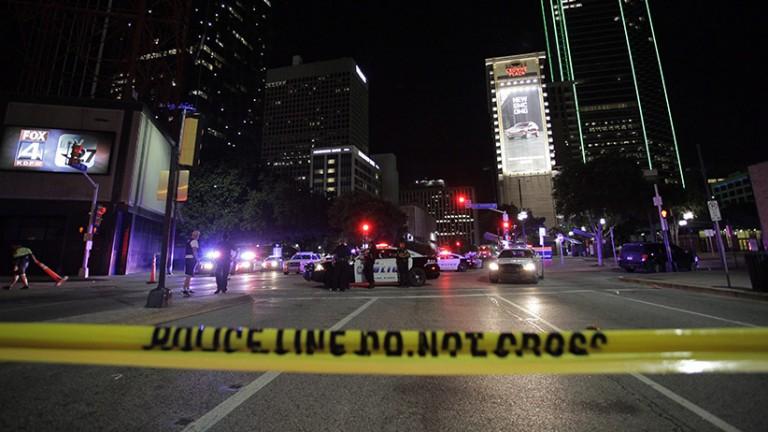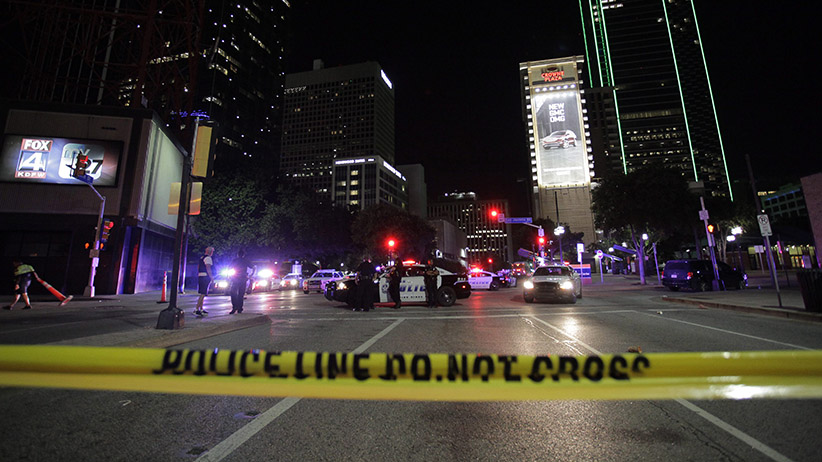Can changing one word make it easier to prosecute police?
An 1866 law in the United States makes it very difficult to prosecute cops. A former assistant attorney general wants to change that.

Dallas police officers face protesters on the corner of on the corner of Ross Avenue and Griffin Street after eleven police officers were shot during a peaceful protest in Dallas, Texas, USA, 08 July 2016. Police report that five officers have died as a result of their injuries as it appeared that two snipers shot the police from elevated positions during a protest rally in Dallas on 07 July. (Ralph Lauer/EPA/CP)
Share

In the United States, law enforcement officers killed 1,134 people in 2015. Those officers are rarely charged and, when they are, they’re almost never convicted. Altering one word could change that.
When police officers break the law they are typically covered by a federal statute enacted in 1866 called the U.S. Code: Title 18, Section 242. Section 242 covers police misconduct in cases where someone “wilfully subjects any person … to the deprivation of any rights, privileges, or immunities secured or protected by the Constitution or laws of the United States.”
The key word here is “wilfully.” While at first glance it may not seem like this statute is related to police officers, 150 years of case law have established that successful prosecution of a police officer needs to prove the intention to deny the person a right by using more force than necessary. In the case of Philando Castile, for example, a prosecutor could question whether shooting a Minnesotan black man who was reaching for his wallet was an appropriate use of force.
As former assistant attorney general for civil rights William Yeomans told The Intercept, “The government has to show beyond a reasonable doubt the officer acted with wilful attempt to deny the victim a right.” Yeomans wants the word “wilfuly” replaced with “reckless disregard” so the question of intent becomes a secondary consideration to the question of reasonableness.
In Canada, a similar legal challenge arose during the trial of Toronto police Const. James Forcillo. Forcillo was convicted of attempted murder, but not murder, even though he admitted he shot and killed Sammy Yatim. Forcillo is appealing, but the prosecution’s decision to bring two charges—one of attempted murder and the other of murder—demonstrates the issue of intent plagues courts in Canada, too.
The murder charges related to the first three shots Forcillo fired, while Yatim was still standing. The attempted murder charges related to the next six shots fired, when Yatim was already dead on the ground. The prosecution was unable to convince the jury that Forcillo was trying to murder Yatim with the first three shots, but it was able to convince the jury of the attempted murder charges on the next six shots.
Changing the law in the United States so there is less need to litigate the mental process of a police officer inside the court room would not, of course, address many of the issues underlying race relations and police violence in the United States. But it might bring police officers closer to the standard that civilians face when determining whether or not they’ve committed a crime.